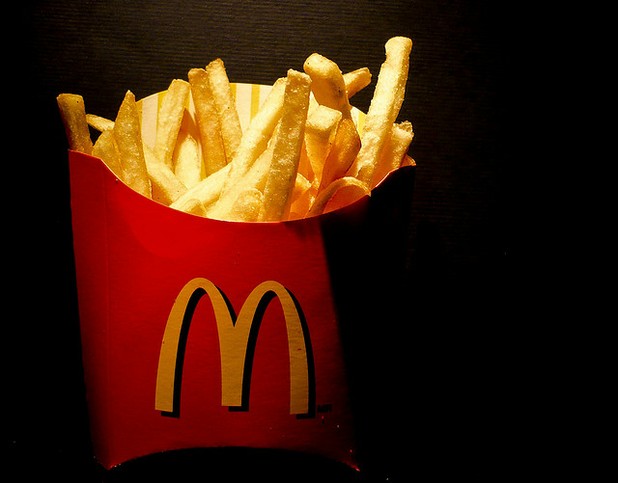- Story Highlights
-
- Forget Will Power: Obesity researchers say that because of the nature of the mind using will power for weight control is unlikely to succeed
- Time Discounting: We'd rather have the pleasure of a cheeseburger today than the possible reward of weight gain down the road.
Obesity Researchers Say Neurobiology, Not Will-Power, the Secret to Weight Control
Comments (1)Researchers at Rush University Medical Center say they’ve figured out how to help people lose weight – and that typical forms of obesity counseling; which involve helping obese people learn strategies overcome cravings to eat high calories foods, just don’t work.
Describing what happens in a typical obesity counseling session, obesity researcher and lead study author psychologist Brad Appelhans says that people are educated about what causes weight gain and then told to resist intense cravings to consume highly palatable foods that are presented nearly everywhere they go in order to make decisions that will result in a long term payoff.
Describing the effectiveness of such typical counseling, he says, “Yet, we know this approach rarely works. Even highly motivated and nutritionally informed patients struggle to refrain from highly palatable foods that are high in sugar, salt and unhealthy fats.”
He argues that instead of putting will power - with its abysmal track record - in charge of things, we need to gain a better understanding of the neurobiological processes behind our desires to eat and then design interventions that work in concert with how our minds actually lead us to crave and eat foods that cause us to gain weight.
According to Appelhans, three forces that research says govern the eating decisions of obese people are:
- Food Reward – Eating tasty foods that aren’t good for us makes us feel good
- Time Discounting – We’d rather feel good for sure with that bowl of ice cream right now than maybe feel good months down the road from weight loss
- Inhibitory Control – We have to consciously suppress urges to eat foods that aren’t good for us
Knowing that these three forces control much of the eating behaviors of all of us who struggle with a few extra pounds, the researchers recommend the following interventions, which don’t involve us using will power to resist high calorie foods:
- Get rid of as many high fat and high sugar foods (the ones you crave) from your home and work environments. You want to stop yourself from seeing and craving these foods all day and night. If the reward and temptation cycle doesn’t get started you don’t have to rely on will power to fight it
- Don’t get yourself into situations where overeating is likely, such as buffet restaurants which demand a great deal of inhibitory control
- Use a grocery list to shop from. And don’t deviate from it at the store
- Learn techniques to manage stress, since stress can lead to overeating
- Make short term goals for healthier eating, rather than long term goals of weight loss
The full research results can be read in the August edition of the Journal of the American Dietetic Association.


